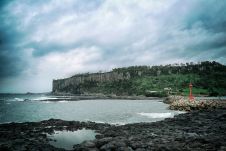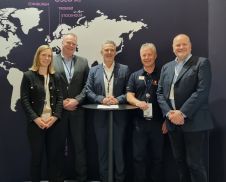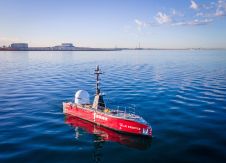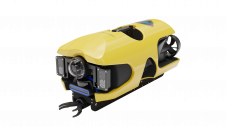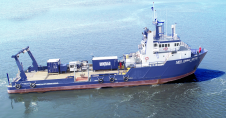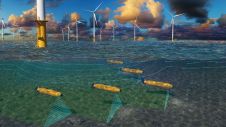From the national Societies: Hydrographic Society Russia
Work Completed
On 28th January HSR member Alexander Gruzdev presented HSR Council with the result of his three years work. In the December issue of HI we gave an overview of this. Now that a weighty volume has come into our hands we are once again convinced of our assumptions. The book has turned out really interesting. This unique well of data allows the discovery of the life-course and destinies of the described generation of hydrographers over fifty to eighty years of the twentieth century and, after detailed analysis, will certainly allow the reader to arrive at important and sometimes unexpected conclusions. So, for example, it appears that some who were very successful students and ended naval school among the first, in real life proved themselves to be, putting it mildly, unlucky losers; some even came to a generally bad end. At the same time, some graduates who ended school far lower down the ladder of success later achieved the best success in service. Future researchers will probably draw other important conclusions. This is very possible, since the author has also offered copies of the book to some libraries and archives.
Research and Discoveries
In 2005-2006 the Russian company Peter Gaz Ltd performed complex prospecting works with the purpose of gathering data necessary for the project entitled ‘The North-European Gas Pipeline’ in the Baltic Sea. This will connect the Baltic coast of Russia near Vyborg to the Baltic coast of Germany near Greifswald. Some research vessels and the best specialists in the field of geophysics, geology, hydrometeorology, hydrography and ecology were involved in this work.
HSR member captain of the 1st rank (Ret.) Dr Oleg Tchurkin was among participants in this research. He recently reported to HSR Council information relating to the carrying out and completion of engineering research on a line of this pipeline. He told Council that detailed survey of the sea bottom had been executed along the planned line of the pipeline, revealing in the immediate proximity of the line a number of sunken objects, both separate items and a complete vessel.
The vessel lies on the bottom near Sommers Island. Sea archaeologists believe this to be a nineteenth-century sailing vessel. There is also an opinion that it may even be a steamship used for transporting German emigrants to Russia, crushed by ice and sunk in this area in 1856.
The results of research carried out using all available modern devices and techniques, together with the high qualification of Peter Gaz Ltd experts, will undoubtedly allow optimising a route for laying the future pipeline, having excluded any unexpected impediments to its construction and further operations.

Value staying current with hydrography?
Stay on the map with our expertly curated newsletters.
We provide educational insights, industry updates, and inspiring stories from the world of hydrography to help you learn, grow, and navigate your field with confidence. Don't miss out - subscribe today and ensure you're always informed, educated, and inspired by the latest in hydrographic technology and research.
Choose your newsletter(s)












